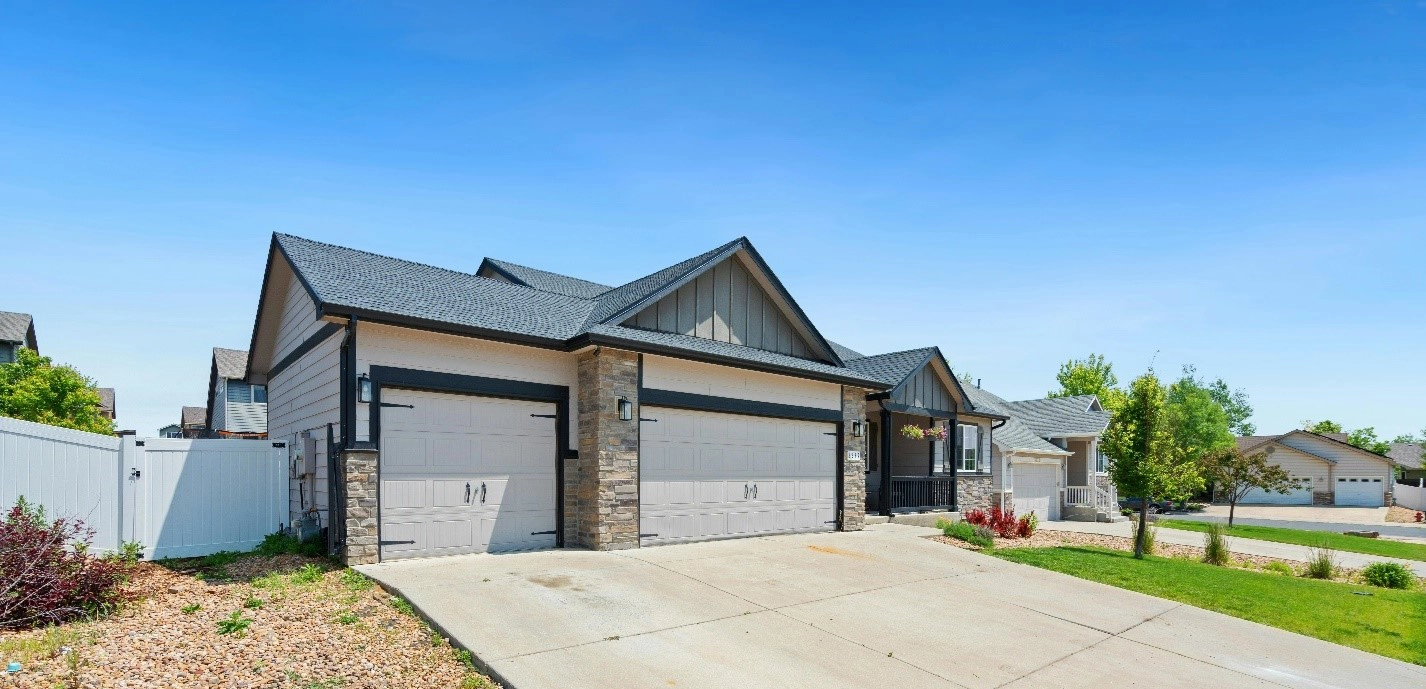
It’s your deed. But it could come with community-wide restrictions, as well as a long list of homeowners’ association rules that support those restrictions. If you value privacy and autonomy, this might be just what you’re trying to avoid. You want ownership — not other people telling you how to live.
But it’s getting harder and harder to find homes apart from community deed restrictions. Even free-standing houses are now typically built for neighborhood associations, and managed by HOA boards.
What gives?
Builders Find Homeowners’ Associations Easy to Establish.
Today’s new developments are built according to the latest standards. They have shared drainage systems, cluster mailboxes, one garbage pickup contract. Setting up an HOA makes a builder’s work straightforward. And during the development phase, only one big property needs protection and upkeep — not hundreds.
The sheer efficiency of communities run by associations means the homes can be less expensive than independent properties. Some people love homes with built-in amenities, roof maintenance, and landscaping services. Many HOAs offer private entrances to trails, and pools, summer yard sales, holiday parties, you name it. For a fee of a few hundred dollars a month (although it could be a four-figure number, especially in the cities), the buyer gets all kinds of perks and time-saving services.
In short, systems for shared communities are efficient for developers — and these homes tend to sell easily.
Sometimes they sell because they’re the only game in town. Consider North Carolina. Since 1999, under the state’s Planned Community Act, new subdivisions come with homeowners’ associations.
Buyers Might Find Drawbacks They’d Hoped to Avoid.
Those who leave the rental scene and buy into a deed-restricted community might find their board adjusting the monthly HOA fee yearly. That’s reminiscent of rent, and can be a downside. Given inflation and the rising costs of maintaining a whole community’s infrastructure, when buyers agree to an HOA fee (sometimes called assessments or dues), that figure is unlikely to ever go down. It may well rise year by year.
Oh, and don’t forget to consider those abrupt rises in condo and homeowner insurance premiums.
Ask your agent questions about all the extras that come along with the costs of living in a deed-restricted community. Here’s how to find a good agent.
As with the rental scenario, buying into the condo or neighborhood association means following rules. The difference is that homeowners in associations at least get a vote when rules are added or changed.
That said, as anyone living in a deed-restricted community can tell you, the rule-crafting power is largely in just a few hands. Sure, you can run for an opening on the board, but that’s time-consuming work.
And keep this in mind. While boards can change and add rules, they generally can’t undo restrictive covenants that run with the property. In short…
Encumbrances on Deeds Are Not Selling Points.
An association’s restrictions are encumbrances on the deed. This means selling a condo, a townhome, or a freestanding home on a community association’s property could be a little harder in areas where buyers actively avoid these associations.
To buyers, the limitations on ownership may feel burdensome, and sometimes arbitrary. There’s a certain uniform appearance that must be kept up, and fines for those who fall short. In some states there can be hassles over signs — even political speech.
Furthermore, in many deed-restricted communities, the homeowner does not own the land under and around the home. While the outdoor maintenance provided by staff can be a huge benefit to a buyer, some people want to have their own land, be able to put up a basketball hoop, solar panels, HAM radio antennae or a satellite TV dish. They might dream of building a deck or a firepit… and so on.
On the other side of the coin, as we’ve noted, most associations provide a set of constant conveniences.
And the prices on association-controlled homes are typically lower.
For a good many buyers, these things are selling points. To get an idea of desirability of the home you’re considering, check the property’s other listings online to see how fast they’re snapped up.
In the Carolinas, HOA Unit Owners Are Speaking Out.

When a state receives complaints against associations or the property managers the associations hire, the gripes typically involve fines, or lack of access to the HOA’s records, or feeling shut out of the decision-making process.
At the moment, North Carolina’s 14,000 HOAs (home to nearly a third of the state population) are facing public scrutiny. Speaking to lawmakers, a resident reported one HOA for neglecting the deed holders. Amenities that these unit owners fund through their fees aren’t open to the residents, and delays keep mounting. Residents suspect that “the developer has done this in order to mitigate his expenses…”
Another HOA dweller said residents can attend board meetings, but they hardly get time to be heard. After a few minutes of the “open” part, the board carries out the rest of the meeting in private.
A representative from the HOA lobbying group Community Association Institute (CAI) told lawmakers in the House Select Committee on Homeowners’ Associations that North Carolina HOAs already have transparency requirements. They must offer an annual board meeting, open to the unit owners.
Just one open meeting a year is required? Perhaps we shouldn’t be surprised that one deed holder told lawmakers an HOA community was behaving like “a secret society.”
Throughout the Carolinas, millions HOA unit holders could use more control over their properties and their daily lives. So far this year, lawmakers have given them a mixed bag.
In South Carolina in the 2023-24 legislation year:
- The state upheld the HOA’s right to foreclose for debts of unit owners.
- A bill that would have forced HOAs to disclose information about the use of fees and fines, and submit their budgets (with quarterly updates) to the state’s consumer protection department failed to pass.
- A new law did pass that directs South Carolina HOAs to hold online meetings and let unit owners participate and vote remotely.
Buyer’s tip: Speaking of transparency and disclosure, have you noticed how listings show HOA fees as well as the prices of HOA homes? This is important. Sellers must disclose the presence of an HOA to potential buyers. If you’re the buyer, always check for HOA status in advance. Know what you’re bargaining for before you fall in love with a place!
What’s Ahead—Killing the Nonprofit HOA?
Most everywhere HOAs exist, they operate under laws that give their boards and management companies a very high level of discretion. The more pervasive HOAs become, the more people are living with them — and questioning their traditional legal model.
Some people want HOAs to be denied nonprofit status under the IRS rules. Regular businesses would have more accountability, they point out.
We shall see. A groundswell of complaints to the states could put that possibility on the national radar.
Supporting References
Clayton Henkel for NC Newsline (the Raleigh-based division of States Newsroom nonprofit news): After Years of Waiting, NC Homeowners Push Legislators to Rein in Powerful Homeowners Associations (Jan. 29, 2024).
And as linked.
More on topics: Political speech and homeowners’ associations.
Photo credits: Hi Room and Myburgh Roux, via Pexels/Canva.
